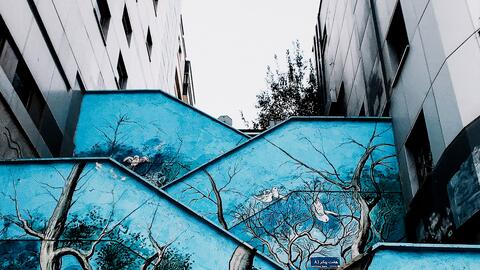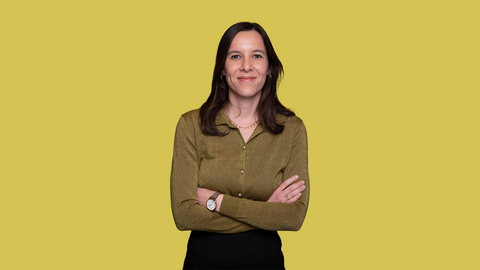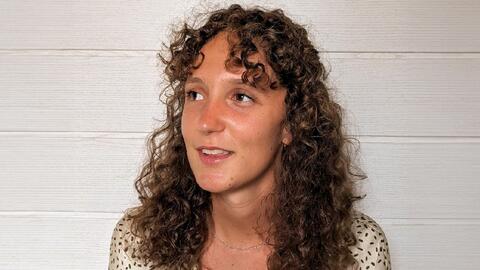The Master in Culture and Transitions is a broad-based degree that prepares experts well-equipped to meet the needs of the world of culture by jointly exploring cultural issues and the challenges of contemporary society.
Year one (M1) is a general, multidisciplinary program of study that also covers technical subjects in specialized classes on the history of the fine arts, copyright and more. An introduction to research is provided in a seminar.
Year two (M2) delivers more specialized learning and includes an apprenticeship.

Ecological, political, economic, digital, regional, societal and other transitions are affecting the world and deeply changing society and public policy. The cultural sector needs professionals with a broad, pluralistic, solid and dynamic approach to cultural policy issues who can accompany and shape these changes from the local to the global level to build and promote a discourse that narrates how these transitions are transforming our existence in the world and ensure that culture is a driving force of change.
By providing both a broad understanding of how the cultural sector operates and how it is changing, together with extensive knowledge of tangible effects on public policies, cultural institutions, companies and the non-profit sector, this Master prepares high-level professionals suited to a wide range of roles and the most contemporary challenges. Not only are cultural policies intrinsically linked to major social challenges in society; culture is a stakeholder in the transformations underway.
- The program is open to applicants who have completed a three- or four-year year post-secondary degree.
- Applicants who do not hold a first-year Master’s degree must demonstrate that they have at least five years of professional experience in the same sector of activity.
- Previous experience abroad (an internship or student exchange program, for example) is encouraged.
UE 1 Thinking differently: telling a story, writing, sharing cultural transitions
- New challenges in culture
- Cultural policy and trends in the shift to a greener world: cultural and natural heritage
- New cultural policy paradigms
- Culture and the construction of narratives
- Cultural policy and new expectations
UE 2 Regional transitions in culture and new approaches
- Constructing cultural policy regions: an introduction
- Cultural policy territories in Brittany
- Restructuring stakeholder landscapes in culture: the social and solidarity economy, cultural industries, third places
- Cultural geography: rethinking the regions of culture
UE 3: Tools for transitions: participating, contributing and accommodating new ways of doing things
- A changing legal context (cultural heritage, copyright law, AI): French and European law
- Tools and methods for participation
- Brand strategy for cultural stakeholders
- Digital tech for transitions
- Financial tools and transitions
UE 4: New methods and trends in project management and transition leadership
- Cultural project oversight and support for transitions in festivals and exhibitions
- Ecodesign and cultural project oversight
- Change management: public policy design and management
- Collective projects: cultural project oversight
UE 5: Apprenticeship
- Personalized follow-up and support
- Oversight and management of cultural projects and their transitions: contexts and challenges; needs assessments; tailoring and planning of cultural programs with clearly defined objectives; required steps and resources; new production and operation methods.
- Understanding of the complexity of cultural policies and related context; implementation of cultural rights; diversification of cultural programs with external stakeholders; junctions between democratic, cultural, institutional, economic, environmental and technical challenges.
- Ability to deliver quality cultural initiatives by managing, uniting and motivating teams.
- Assessment of a cultural initiative’s effectiveness; identification of strengths and areas for improvement; adjusting programs and projects as needed through continuous improvement.
- Ability to defend a project to different parties; mobilize major concepts in public communication (e.g. brand strategy) and public policy design.
- Ability to ensure the financial viability of an activity; drive resource diversification and optimize available resources.
- Project manager / Project officer / Design officer or engineer in the cultural or regional sector
- Administrator / Coordinator or Director at a cultural non-profit, institution, company or structure
- Cultural manager at a regional authority such as a directorate of cultural affairs (DAC)
- Leadership or administration roles at private-sector culture-oriented companies (management, marketing, patronage, etc.)
- Communication and processing of artistic and cultural information
- Advisor or attaché for cooperation/cultural initiatives
Sciences Po Rennes students :
Fourth-year preference
Fifth-year hosted applicant :
Fifth-year transfer application
Continuing education and students from other schools:
Admission is based on an application and an interview with the program manager. Download the application on the website.
Second-year Master’s admission
Click hereto register and download the application file
+ The completed application file and supporting documents should be emailed as a single PDF to the address indicated on page 2 of the file.
If your application is accepted, you may be contacted for an interview with the academic program director(s).



